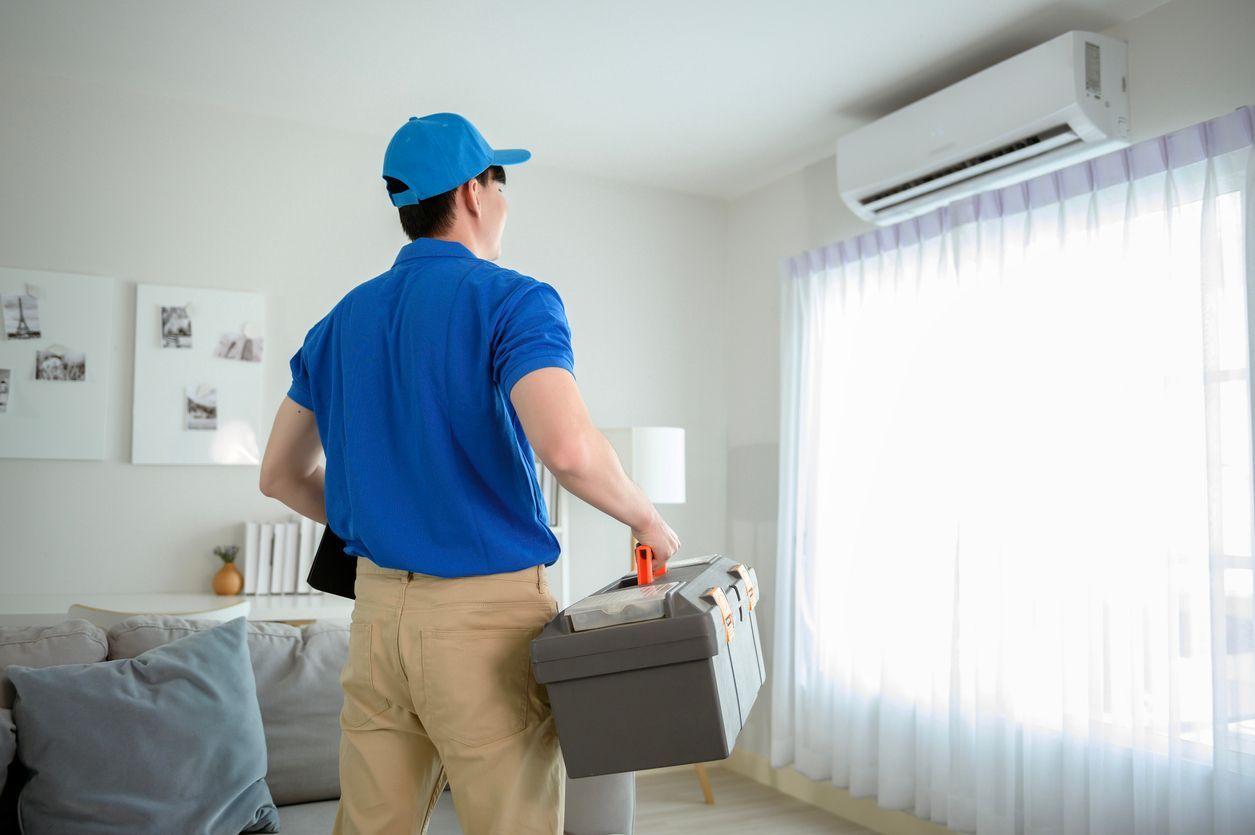Should You Replace Your Furnace and AC at the Same Time?

If you're in the market for a new furnace or air conditioner, have you considered replacing both simultaneously? There are pros and cons to replacing HVAC systems one at a time and together, and each homeowner must make a decision based on their unique needs.
So, should you replace your furnace and AC at the same time? The answer depends on several factors that play a pivotal role in shaping your decision. Let's delve deeper to gain a comprehensive understanding of your options.
When to Replace Your Furnace and Air Conditioner Together
Consider replacing your furnace and air conditioner together based on the following factors:
Cost Savings
Replacing HVAC systems together can lead to significant cost savings. According to ThePricer.org, new furnace and air conditioner combos range in price from $5,000 to $15,000, while replacing just one HVAC system can run $4,000 to $12,000. The national average for replacing both systems at the same time is $7,500.
Some of the factors that affect the price include:
- Efficiency rating
- Make and model
- System size
- Labor costs
- Additional features such as variable speed motors, smart thermostats, and whole house air purifiers
- Service plans
Discounts
Many HVAC companies offer steep discounts for buying and installing both units as a combo. Ask a local HVAC contractor about any discounts they may offer.
Age of the Systems
Well-maintained central air conditioners and furnaces typically last about 15-20 years each. If you're replacing your air conditioner, and your furnace is within this age range, it's a more cost-effective option to replace them together. This will avoid needing to replace the other system soon after the other.
Compatibility and Matching Components
Air conditioning systems and furnaces are designed to work together in tandem as a complete HVAC system. They share the same air handler, which contains the blower that pushes conditioned air through your ductwork and into your living areas. Matching your HVAC system with an effective air handler allows the system to operate efficiently in tandem.
Replacing the systems together also ensures the units are compatible with each other by matching the system's capacity and efficiency, leading to improved performance.
Increased Energy Efficiency
New furnaces and air conditioners use advanced features and modern technology to increase efficiency and convenience. If you're upgrading your AC with a high-efficiency model, consider swapping out your older furnace as well so you'll achieve efficient heating and cooling for year-round comfort.
HVAC systems manufactured today are far more efficient that systems built just 10 years ago. Many older ACs have Seasonal Energy Efficiency Ratio (SEER) ratings of 10 or less. The government SEER standard for new air conditioners purchased in 2023 and beyond is 14 SEER in Northern states and 15 SEER in Southeast and Southern states.
Meanwhile, new gas furnaces typically have an Annual Fuel Utilization Efficiency of 90% or higher, making them highly efficient. A 90% AFUE rating means the furnace converts 90% of the fuel it burns into heat for your home. A heat pump's efficiency is measured by SEER during cooling mode and Heating Seasonal Performance Factor (HSPF) in heating mode. A minimum HSPF of 8.2 is required for new heat pumps across the United States.
Convenience
Replacing an HVAC system is a time-consuming process. It requires researching the various makes and models to find a system that is both efficient and the right size for your home. You also need to hire a reputable HVAC company to install it correctly. Replacing both systems now will avoid needing to go through this process twice, which will minimize disruption in your home.
“In most circumstances, it's best to replace the whole system at the same time,” said Todd Russo, owner of Reeis Air Conditioning in Phoenix, AZ. “The number-one reason is you want the system ratings to match up. You don't want to match a new, high-efficiency heater with an outdated blower motor that's tied to an old furnace. The system won't be as efficient.”
When to Replace Just One HVAC System
Of course, replacing both systems at the same time isn't always the better option. Some of the reasons to consider replacing just one unit include:
One System Is Still Functional
If one system is still efficient and operating at a high level, it may still have a few years of useful life left in it. In this case, opt for replacing just one system.
Budget Constraints
Buying new HVAC equipment is a significant financial investment for many homeowners. If you can't afford to buy both heating and cooling systems simultaneously, replace the one that is showing more signs of failure. Then, plan to replace the other system in the near future.
Age
Age plays an important role in determining whether to replace HVAC equipment. If you're replacing your central air conditioning system because it's 15 years old, but your furnace was installed just five years ago, replace just your AC unit.
FAQs on Replacing Your Furnace and AC at the Same Time
Is it more expensive to replace an AC or furnace?
It's typically more expensive to replace your AC than a furnace. A 3-ton air conditioner costs an average of $4,000 to $8,000, while a furnace typically costs between $4,000 and $6,000.
Is it best replace a furnace and AC at the same time?
In most cases, it is best to replace your furnace and AC at the same time. Doing so ensures both systems are compatible with each other. Buying both together can also save you a significant amount of money.
How often does an HVAC system need to be replaced?
An HVAC system should be replaced about every 10-15 years. According to Energy Star, replace heat pumps and air conditioners after 10 years and furnaces after 15 years.